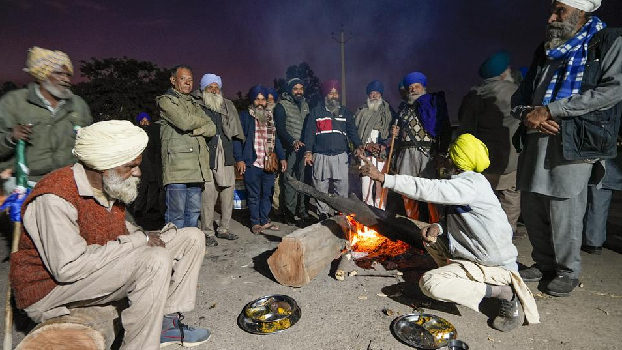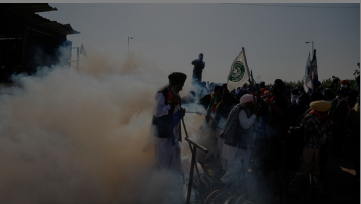Next Round of Talks ongoing farmers’ protest in India, which has been a significant point of contention between the central government and the farming community, is set for another round of discussions on March 19, 2025. This development was conveyed by the Punjab Government to the Supreme Court, highlighting the continued efforts to find a resolution to the farmers’ demands.
Background of the Farmers’ Protest
The farmers’ protest began in November 2020, when thousands of farmers, Next Round of Talks primarily from Punjab, Haryana, and western Uttar Pradesh, gathered at Delhi’s borders to oppose the three farm laws introduced by the central government. Though these laws were repealed in November 2021, farmers have continued their agitation, demanding legal guarantees for Minimum Support Price (MSP), debt waivers, and other agricultural reforms.
Despite multiple rounds of talks between farmer leaders and the central government, a permanent resolution has remained elusive. The latest round of negotiations scheduled for March 19 indicates a renewed effort by both sides to find common ground.
Punjab Government’s Statement in the Supreme Court
During a hearing on February 28, 2025, the Punjab Government informed the Supreme Court of India that the next round of discussions between the Centre and the protesting farmers is scheduled for March 19. The state government’s counsel emphasized that efforts are being made to ensure a peaceful resolution to the ongoing protests.
The Supreme Court had sought a response from the Punjab Government regarding the ongoing agitation, particularly in light of recent clashes between protesting farmers and law enforcement agencies at the Punjab-Haryana border. The court has been monitoring the situation closely, Next Round of Talks considering the potential disruption to public order and economic activities.
Demands of the Farmers
The Samyukta Kisan Morcha (SKM) and other farmer organizations have placed the following key demands before the central government:
- Legal Guarantee for MSP – Farmers want the government to pass a law ensuring that all crops are purchased at Minimum Support Price rates. They argue that without a legal backing, Next Round of Talks MSP remains unreliable and does not cover all farmers adequately.
- Farm Debt Waiver – Many farmers are trapped in debt due to fluctuating crop prices and high input costs. They are demanding a comprehensive loan waiver to relieve financial stress.
- Pension for Farmers – A fixed monthly pension for small and marginal farmers is another key demand to provide financial security to aging farmers.
- Withdrawal of Cases Against Protesters – Several cases were filed against farmers during the 2020–2021 protests. Farmers are demanding complete amnesty for all those booked during the protests.
- Fair Compensation for Farmers Affected by Land Acquisition – Farmers are seeking fair compensation and rehabilitation policies for those displaced due to government projects.
- Implementation of Swaminathan Commission’s Recommendations – The M.S. Swaminathan Commission recommended policies to improve farmers’ incomes. Protesters want these recommendations fully implemented.
- Action Against Police Brutality – Farmers have raised concerns about police excesses during protests, particularly the use of tear gas shells, barricading, and detentions.
 For the more information click on this link
For the more information click on this link
Government’s Stand on the Issues
The Union Government, led by the Bharatiya Janata Party (BJP), Next Round of Talks has expressed willingness to engage with farmers but remains firm on some issues:
- MSP Law: The government has argued that an MSP law may not be economically viable and could distort market dynamics. However, it has promised to increase procurement under MSP schemes.
- Loan Waivers: While some relief packages have been announced, Next Round of Talks the Centre insists that a full-scale loan waiver is not feasible.
- Legal Cases Against Farmers: The government has agreed to review cases on a case-by-case basis, but it has not committed to a blanket withdrawal of all charges.
- Use of Force During Protests: Authorities maintain that the use of force is a law-and-order issue and is decided based on the situation at hand.
Recent Developments in the Protest Movement
Over the past few months, tensions have intensified between farmers and security forces. In February 2025, thousands of farmers from Punjab attempted to march towards Delhi but were stopped at the Punjab-Haryana border. Police used tear gas, water cannons, Next Round of Talks and barricades to prevent their entry, leading to violent clashes. Several farmers were injured, and reports of arrests and detentions surfaced.
The Punjab and Haryana High Court recently sought a report from both state governments on the handling of protests, emphasizing that peaceful demonstrations are a constitutional right but must not disrupt public life.
Role of the Supreme Court
The Supreme Court of India has played a crucial role in mediating the dispute. It has urged both parties to engage in constructive dialogue and find a middle ground. In 2021, the apex court had put the now-repealed farm laws on hold and set up an expert committee to examine farmers’ concerns.
In the latest hearing, Next Round of Talks the court reiterated that violence and confrontation should be avoided and encouraged both parties to explore long-term solutions. The March 19 talks will be held under this backdrop of judicial oversight and public scrutiny.
Political Reactions
The upcoming discussions have sparked political debates across party lines:
- Congress and other opposition parties have accused the BJP-led central government of being insensitive to farmers’ issues and using delay tactics.
- AAP (Aam Aadmi Party), which governs Punjab, Next Round of Talks has expressed support for the farmers but has also urged protesters to remain peaceful.
- BJP leaders, on the other hand, maintain that they are open to dialogue and that past discussions have already resulted in significant concessions, Next Round of Talks including the repeal of farm laws.
Economic Impact of the Protests
The ongoing agitation has had economic repercussions:
- Disruptions in supply chains due to road blockades have affected the movement of essential goods.
- Businesses and transport sectors have reported losses due to frequent protests and road closures.
- The agricultural economy itself is impacted, Next Round of Talks as prolonged protests affect farming activities, particularly during sowing and harvesting seasons.
 For the more information click on this link
For the more information click on this link
What to Expect from the March 19 Talks?
The March 19 meeting will be a crucial test of whether the Centre and farmer leaders can break the deadlock. Some possible outcomes include:
- Partial Agreement – The government may offer additional benefits or policy measures to address some of the demands.
- Breakdown of Talks – If no consensus is reached, protests may intensify, Next Round of Talks leading to further standoffs.
- Legal Interventions – The Supreme Court may step in with recommendations or directives to resolve key issues.
Conclusion
The scheduled March 19, 2025, talks between the central government and protesting farmers represent another opportunity to address long-standing grievances. While both sides remain firm on their positions, the involvement of the Supreme Court and public pressure may push for a constructive resolution. Farmers continue to demand legal guarantees on MSP, loan waivers, Next Round of Talks and justice for protesters, while the government remains cautious about economic feasibility and policy constraints.
As the nation watches closely, the outcome of these talks could reshape India’s agricultural policies and farmer-government relations for years to come. ALSO READ:- U.N. Adopts Resolution Demanding Russia Immediately Withdraw Troops from Ukraine 2025




